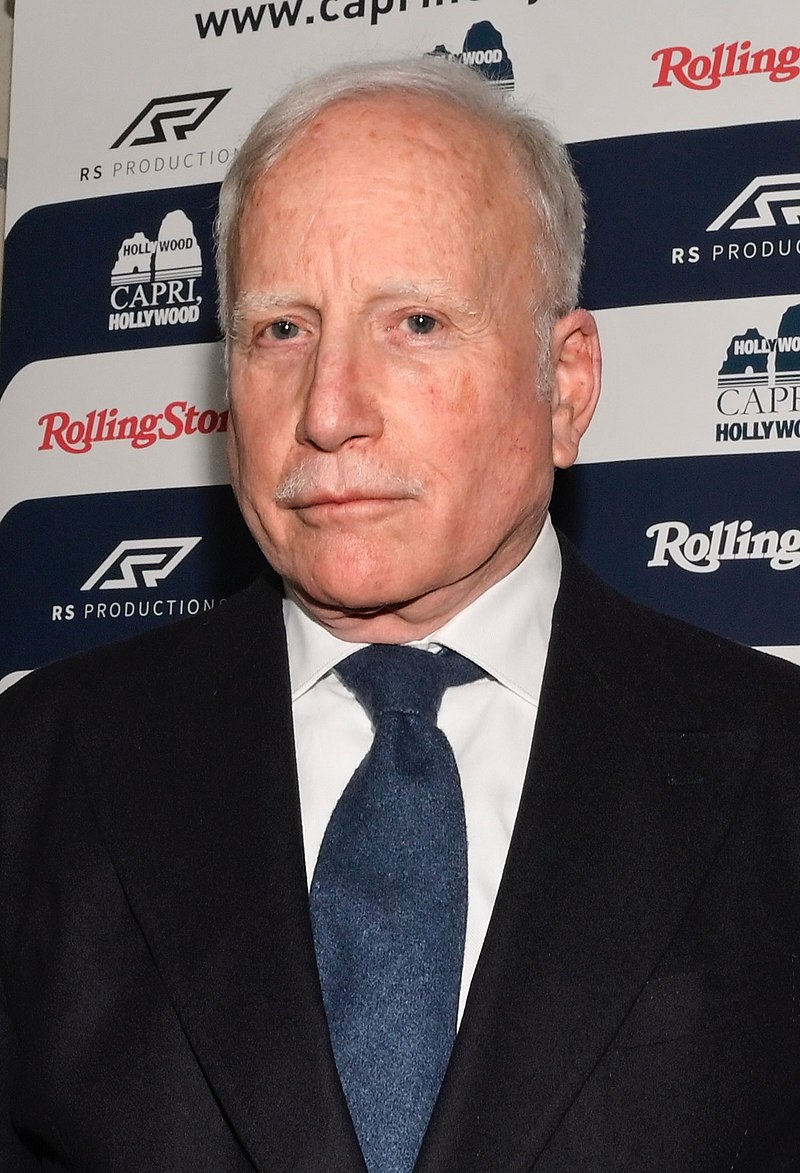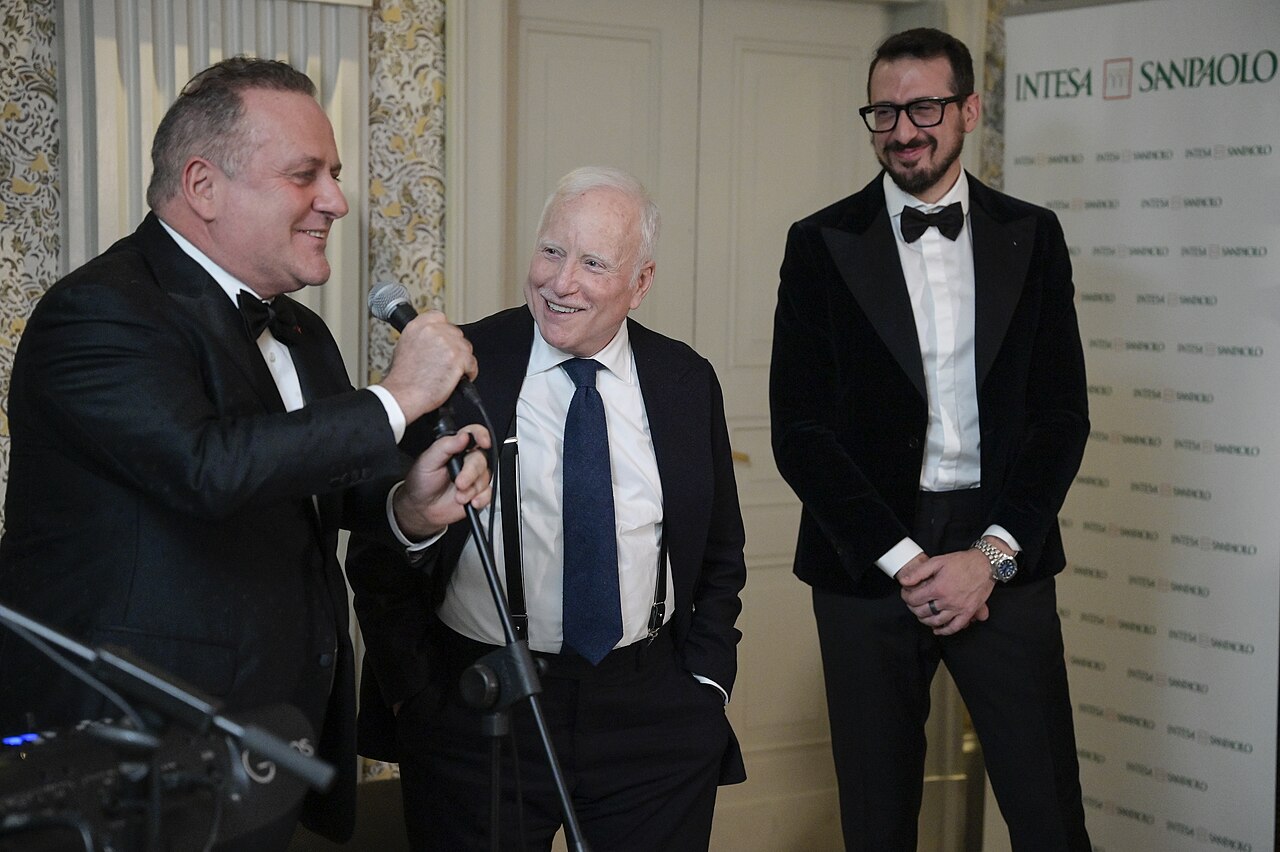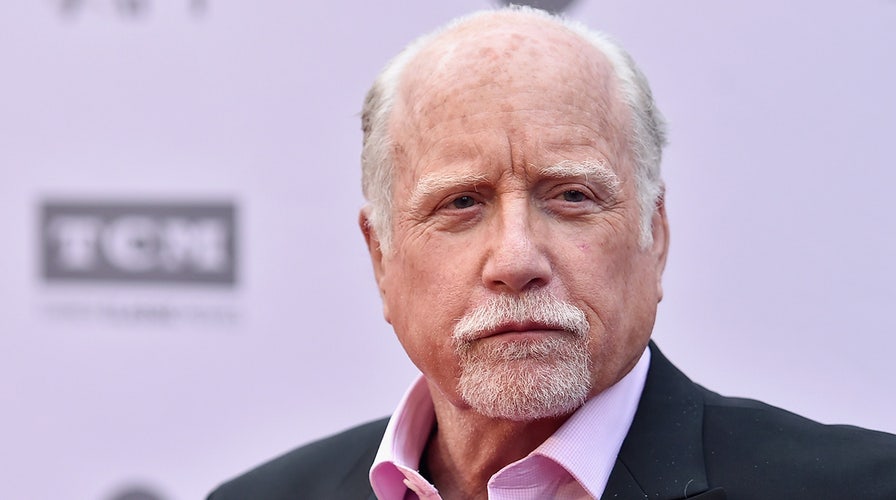Richard Dreyfuss
Richard Dreyfuss

Richard Stephen Dreyfuss, born on October 29, 1947, is an American actor renowned for his roles in popular films spanning the 1970s, 1980s, and 1990s. He gained prominence for his performances in iconic movies such as "American Graffiti" (1973), "Jaws" (1975), and "Close Encounters of the Third Kind" (1977). Dreyfuss showcased his versatility with roles in diverse genres, from comedy in "The Goodbye Girl" (1977) to drama in "Always" (1989) and "Mr. Holland's Opus" (1995).
In 1977, Dreyfuss won the Academy Award for Best Actor for his role in "The Goodbye Girl," becoming the youngest-ever actor, at the age of 30, to receive the prestigious award. He received further acclaim for his portrayal of Glenn Holland in "Mr. Holland's Opus," earning him another Academy Award nomination for Best Actor in 1995.
Throughout his career, Dreyfuss received recognition from various award bodies, including a Golden Globe and a BAFTA. He also garnered nominations for two Screen Actors Guild Awards in 2002, for his starring role in the CBS drama series "The Education of Max Bickford" and his portrayal of Alexander Haig in the Showtime film "The Day Reagan Was Shot."
Dreyfuss's contributions to cinema have solidified his place as one of the most respected actors in Hollywood, with his performances leaving a lasting impact on audiences worldwide.
Richard Stephen Dreyfuss was born on October 29, 1947, in Brooklyn, New York, the second son of Norman Dreyfuss and Geraldine Robbins. His father, Norman, was an attorney, restaurateur, and plastics company owner with a background in a violent gang culture in Brooklyn. Geraldine, his mother, was a peace activist. Dreyfuss grew up with an older brother, Lorin Dreyfuss, who was involved in the film industry, and a younger sister named Cathy.
Norman Dreyfuss suffered debilitating physical effects from a mortar explosion during World War II, which left him reliant on crutches, canes, and special footwear provided by the Army. He left the family when Richard was 21 years old and remarried multiple times. At the time of his death, he and Richard were not on speaking terms.
The family resided in the Bayside area of Queens, New York, before eventually moving to Los Angeles, California, when Richard was nine years old. Dreyfuss attended Beverly Hills High School. Coming from a Jewish background, his family's roots trace back to immigrants from Russia and Poland. Dreyfuss has reflected on his familial connection to historical figures like Alfred Dreyfus and Hesya Helfman, one of the assassins of Tsar Alexander II of Russia.
Richard Dreyfuss's acting career began in his youth, where he participated in drama classes at the Temple Emanuel of Beverly Hills Arts Center and the Westside Jewish Community Center under Bill Miller. He made his television debut at the age of fifteen in In Mama's House. After attending San Fernando Valley State College for a year, he became a conscientious objector during the Vietnam War and worked in alternate service for two years at a Los Angeles hospital.
During this time, Dreyfuss appeared in various small television roles on shows such as Peyton Place, Room 222, Gidget, That Girl, Gunsmoke, Bewitched, The Ghost & Mrs. Muir, and The Big Valley. He also performed on stage in Broadway, Off-Broadway, repertory, and improvisational theater during the late 1960s and early 1970s.
Dreyfuss's film career began with small roles in The Graduate and Valley of the Dolls. He gained recognition with roles in films such as The Apprenticeship of Duddy Kravitz (1974) and American Graffiti (1973). However, it was his roles in blockbuster hits Jaws (1975) and Close Encounters of the Third Kind (1977) that solidified his status as a leading actor.
In 1977, Dreyfuss won the Academy Award for Best Actor for his performance in The Goodbye Girl, making him the youngest actor to win the award at that time. Throughout the 1970s and early 1980s, Dreyfuss continued to star in successful films, but his career was marred by struggles with addiction. He entered rehabilitation following a cocaine-related incident in 1982.
Dreyfuss made a Hollywood comeback with films like Down And Out In Beverly Hills (1986) and Stakeout (1987). He also had notable roles in Stand by Me (1986) and Moon over Parador (1988). In 1989, he reunited with Steven Spielberg for Always. Throughout the 1990s, Dreyfuss continued to deliver memorable performances in films such as What About Bob? (1991) and Prisoner of Honor (1991).
Despite facing personal challenges, Dreyfuss has remained a respected and influential figure in the entertainment industry, known for his versatility and talent as an actor.
In 1994, Richard Dreyfuss participated in the historic Papal Concert to Commemorate the Shoah at the Vatican, where he recited Kaddish as part of a performance of Leonard Bernstein's Third Symphony with the Royal Philharmonic Orchestra. The event, which was attended by Pope John Paul II, Rav Elio Toaff, chief rabbi of Rome, and Oscar Luigi Scalfaro, President of the Italian Republic, was broadcast worldwide.
Following this, Dreyfuss received critical acclaim for his performance as Glenn Holland in Mr. Holland's Opus (1995), earning nominations for an Oscar and a Golden Globe. He continued to work in movies, television, and stage productions. From 2001 to 2002, he played the titular role in the television drama The Education of Max Bickford.
In 1997, Dreyfuss lent his voice to the Apple Computer "Think Different" ad campaign and provided narration for The Call of the Wild: Dog of the Yukon. He also served as a research adviser at St Antony's College, Oxford, from 2004 to 2008.
Dreyfuss's stage career included a revival of Sly Fox on Broadway in April 2004, where he appeared alongside Eric Stoltz, René Auberjonois, Bronson Pinchot, and Elizabeth Berkley. However, he faced challenges, including injuries from a herniated disc surgery, leading to his withdrawal from a production of The Producers in London in November 2004. Despite this setback, he made his West End debut at The Old Vic in 2009.
In 2006, Dreyfuss portrayed Richard Nelson, a gay architect and survivor, in the film Poseidon. He also took on the role of U.S. Vice President Dick Cheney in Oliver Stone's 2008 biographical film W.
References
- Usborne, David (January 31, 2009). "Richard Dreyfuss: Out of the wreckage". The Independent. London. Retrieved January 31, 2009.
- a b Barber, Richard (September 8, 2017). "Richard Dreyfuss: 'The one topic on which my dad would open up was sex'". The Guardian.
- ^ "Richard Dreyfuss Profile". E! Entertainment Television, Inc. Archived from the original on January 1, 2008. Retrieved April 26, 2019.
- ^ "Richard Dreyfuss: 'The one topic on which my dad would open up was sex' | Family | The Guardian". amp.theguardian.com. Retrieved February 12, 2022.
- ^ "Overview for Richard Dreyfuss". Turner Classic Movies. Archived from the original on April 19, 2018. Retrieved August 2, 2012.
- ^ Jacobs, Andrea (March 1995). "Richard Dreyfuss at middle age: A rebellious Jew finds his own wisdom". The Jewish Advocate. Archived from the original on October 17, 2007. Retrieved April 26, 2019 – via FindArticles.
- ^ "Academy Award Winning Actor Richard Dreyfuss Speaks at BHCC". Bunker Hill Community College. United Business Media. February 1, 2007. Archived from the original on May 23, 2008. Retrieved April 26, 2019 – via PR Newswire.






































